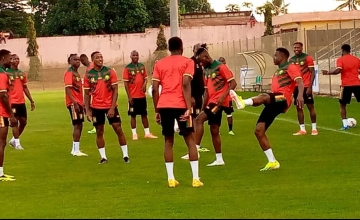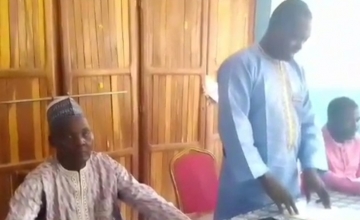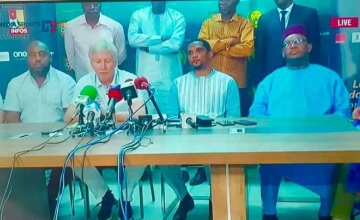_archives_cameroon-info-p-net_800xm9x.jpg)
Cameroon-Info.Net learnt that Doris Kedze was killed in an early morning raid on the village by armed men seeking the independence of a country they call Ambazonia.
The separatist fighters are said to have shot the deceased because she went out of her house very early Monday morning, when the gunmen were firing several rounds in the air, apparently in a bid to enforce routine Monday ghost town operations.
Left to bleed to death, the armed men are said to have taken at least six villagers into captivity. A nursing mother as well as a pastor of the local Full Gospel congregation are said to be among those taken hostage.
Open sources suggest that the armed men targeted those who sell alcoholic beverages in the village, apparently an attempt to enforce their “ban” on the commercialization of Brasseries du Cameroun products.
The armed men are said to have made away with bottles of beer, emptying its contents as they fled into hiding. The empty crates and bottles are said to have been abandoned along the road.
Informed, defense and security forces are said to have descended to Bonakanda apparently for a search and rescue mission.
Cameroon-info.net recalls that on Tuesday, September 3, 2019, armed separatists stormed the Bonakanda Community Radio, threatened to burn down the radio station before seizing into captivity Mary Namondo, an animator at the local broadcaster. She was later freed.
Clashes between armed separatists and government forces, as well as between rival separatist factions, have resulted in civilian deaths, with people either killed deliberately or caught in the crossfire, and others taken hostage against ransoms.
In May last year, a video emerged showing separatists torturing a man over claims that he sells “contraband” drinks. The man was kidnapped, beaten, and burned in an abandoned school in Bali by armed men.
The video, verified by a dozen sources including five people who recognize the school and its location, corroborates previous accounts of torture and occupation of schools by armed separatists documented by Human Rights Watch.
“Once again material is circulating to support allegations that armed separatists are abusing civilians,” said Lewis Mudge, Central Africa Director at Human Rights Watch. “Separatist leaders should immediately direct their fighters and followers to halt attacks, including torture and other abuse aimed at civilians.”
The footage shows at least four separatist fighters threatening and torturing the man, who is wearing only his underwear, forcing him to sit on burning pieces of paper and beating him with sticks and machetes.
An analysis of the dialogue in the video revealed that the victim was a driver from the village of Bali who had been transporting products for Brasseries du Cameroun, a brewery company the separatists oppose. They have banned the marketing, purchase, and transport of its drink products within the areas they control, says Human Rights Watch.
Separatists could be heard accusing the driver of selling Brasseries’ products in the Bali and Batibo parts of the North West region. The yet to be identified victim begged his torturers to stop, but they instead threaten to “wash him with gasoline,” implying they will kill him.
Since late 2016, the Anglophone regions of Cameroon have been gripped by deadly violence, claiming the lives of over 1,800 people and forcing half a million to flee their homes.
Last year, Human Rights Watch said: “Armed separatists have killed hundreds of members of security forces and assaulted and kidnapped hundreds of people during their increasing attacks and growing calls for secession of the North-West and South-West regions.
“Since the crisis escalated, armed separatists have tortured dozens of people. In the past year, Human Rights Watch has documented numerous cases of torture by armed separatists against workers of the Cameroon Development Corporation, who work in the company’s banana plantations near Tiko, South-West region. The workers have been beaten or maimed because they refused to participate in a general strike called by the separatists.
Cameroon’s international partners and the UN Security Council should impose targeted sanctions on separatist leaders who bear responsibility for abuses, including torture and occupation of schools, Human Rights Watch said.
“The separatists should know the world is paying attention and those responsible for torture will face the consequences,” Mudge said. “Armed separatists should let children return to their studies and stop using the schools to carry out their campaign.”











_cameroon-info-p-net_360x220.jpg)


